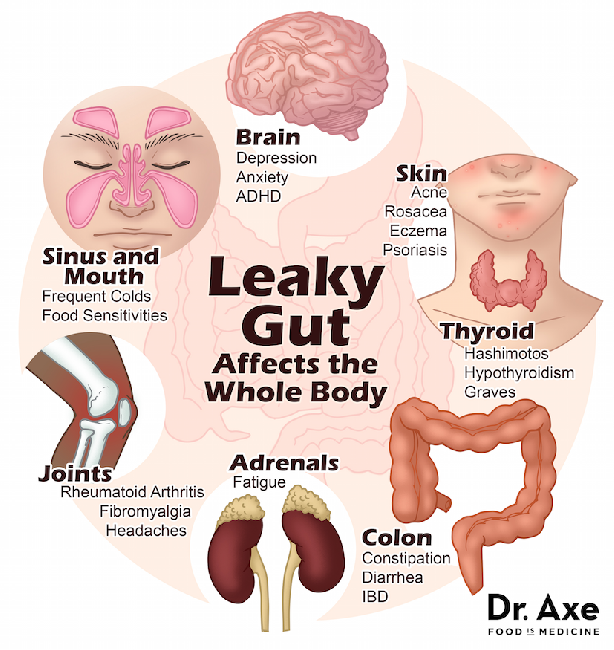• Kapadhi /Uiras and Dr David Hute /UirabFOOD that we eat needs to be digested in our gastrointestinal tract (GIT), before it can be absorbed into the bloodstream, from where it is distributed and used for energy in different parts of the body. This digestion already starts in the mouth and takes place mainly in the stomach, assisted by stomach acid and various digestive juices. Absorption takes place mainly in the small intestine, but occurs throughout the gastrointestinal tract.
The lining of the gut is usually controlled by tight junctions that control the flow of molecules between the GIT and the bloodstream.
If the integrity of the gut is compromised, this control is lost and larger particles that would otherwise not pass through, find their way into the bloodstream. The proponents of the Leaky Gut Syndrome posit that undigested food particles, bacterial toxins and germs pass through the damaged wall and into the bloodstream. Your ability to digest food and absorb nutrients is thus compromised.
This results in both an immune response and an inflammatory response, with a whole host of symptoms, including heartburn, indigestion, bloating, diarrhoea or constipation and multiple allergies.
As can be seen, these symptoms are not unique–they are shared with other disease entities and this is why some doctors feel that the evidence for a disease entity called “the Leaky Gut Syndrome” has yet to fully accumulate.
These large particles are recognised as foreign by the immune system of the body and therefore attacked. Pro-inflammatory markers are also released, causing an inflammatory response throughout the body.
These result in allergic symptoms in the patient, more often than not. It is reported that people who never had allergies before, suddenly develop multiple (and a growing list of) allergies.
The hypothesis is that the body’s immune system becomes hyper responsive as a result of the floating undigested food particles and toxins, resulting in it also responding to other environmental stimuli that previously did not elicit an allergic response. This is probably partly because the gut is seen as the biggest immune system organ.
It is also suggested that this state results in decreased mineral absorption and increased risk of toxins absorption.
What makes the gut to become “leaky”?
THE FOLLOWING ARE SUGGESTED TO DESTABILISE THE GUT WALL:
Prolonged stress
Excessive growth of candidiasis
Certain drugs, like anti-inflammatories (aspirin, ibuprofen, etc.)
Gut infection
Radiation therapy
Regular alcohol intake
Nutritional deficiencies
Inflammatory bowel disorders, like IBS, celiac disease and Chron’s disease.
Auto-immune disorders
Asthma
MANAGEMENT:
Avoid alcohol and caffeine in beverages such as drinks, coffee and tea.
Limit processed foods. Use lots of high fibre foods.
Limit diets high in sugar, like cookies, cool drinks, white bread, etc.
Limit animal products treated with hormones and excessive antibiotics.
CONCLUSION
While many in the mainstream scientific medicine feel that evidence for a clear entity of “Leaky Gut Syndrome” is still incomplete, it is clear that following general healthy lifestyle measures, including stress management, should assist with the symptoms.
We encourage the readership to get in touch with us for further discussion on this.
Stay informed with The Namibian – your source for credible journalism. Get in-depth reporting and opinions for
only N$85 a month. Invest in journalism, invest in democracy –
Subscribe Now!










